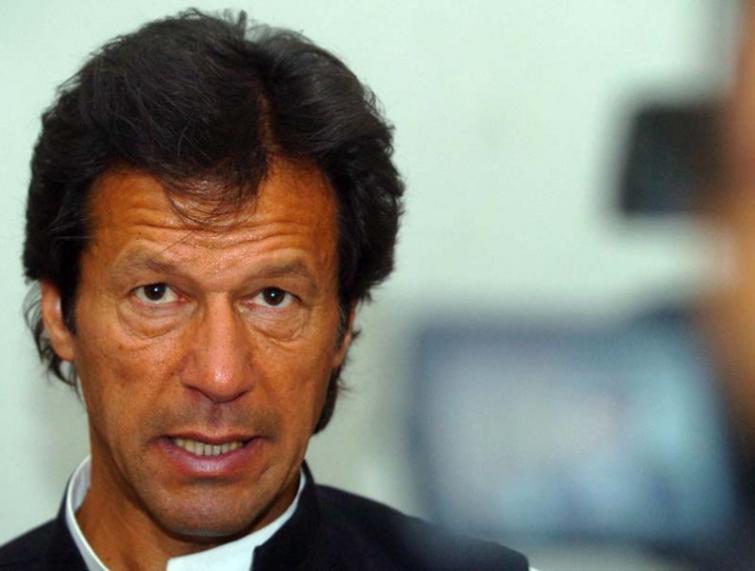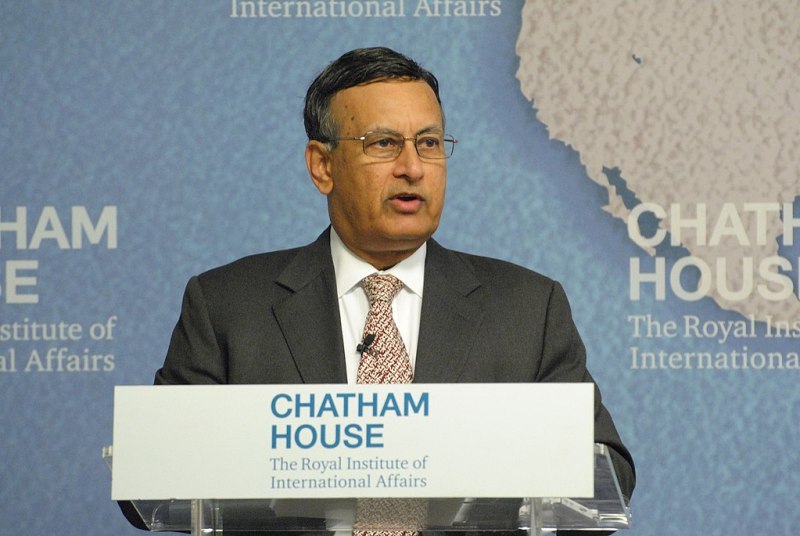
PM Imran Khan's recent NYT interview on Kashmir questioned by ex-Pak diplomat Husain Haqqani
New York, Aug 26 (IBNS): At a time when the relationship between India and Pakistan touched a new low over PM Narendra Modi-led government's Kashmir move, Pakistan Prime Minister Imran Khan in an interview to The New York Times said that there was no point talking to India. However, his comments were questioned by former Pakistan ambassador to the US Husain Haqqani who felt all leaders from the Islamic nation echoed similar thoughts for decades to earn the attention of the United States.
In the interview with The New York Times, Khan, whose PTI came to power last year in a controversial election, complained bitterly about what he described as repeated rebuffs from Prime Minister Narendra Modi of India at his entreaties for communication, both before and after the Aug. 5 move of scrapping Article 370 in the disputed territory of Kashmir.
“There is no point in talking to them. I mean, I have done all the talking. Unfortunately, now when I look back, all the overtures that I was making for peace and dialogue, I think they took it for appeasement,” Khan said during the interview, at the prime minister’s office in Islamabad.
“There is nothing more that we can do,” he told the newspaper.
However, the interview was not completely welcomed by former Pakistan ambassador to the US and presently a scholar at the American think tank The Hudson Institue, Husain Haqqani. He tweeted: "Someone needs to put together all interviews of #Pakistan presidents & PMs with @nytimes, going back to Ayub Khan. No reporter can turn them down so Pak leaders use these i’views to get US attention & support. All have similar talking points, going back to 1959!!!!."

When a Twitter user, whose handle is known by the name Colonized Kashmir, questioned him about his stand by asking "What other motive should be, besides getting attention and support of US ?? Can you guide please Haqqani Sb.", he quipped: Being truthful about the past and saying something new might be worth a try, dont you think? ."
Someone needs to put together all interviews of #Pakistan presidents & PMs with @nytimes, going back to Ayub Khan. No reporter can turn them down so Pak leaders use these i’views to get US attention & support. All have similar talking points, going back to 1959!!!! https://t.co/aVCJUbX9CT
— Husain Haqqani (@husainhaqqani) 22 August 2019
Being truthful about the past and saying something new might be worth a try, dont you think? 🤔
— Husain Haqqani (@husainhaqqani) 22 August 2019
Pakistani journalist Taha Siddiqui, who escaped a kidnapping attempt in his country last year and now lives in self-imposed exile in France, also questioned the interview and interviewers and said: "Access journalism shud b avoided unless subject can be grilled e.g. he shudve been asked abt LeT n why no leaders frm grp convicted/punished over Mumbai attacks. Also if Khan is so concerned abt HR [human rights] in Kashmir, wht abt [sic] his own record of HR in Pak & discrimination in Kashmir / GB."
Access journalism shud b avoided unless subject can be grilled e.g. he shudve been asked abt LeT n why no leaders frm grp convicted/punished over Mumbai attacks. Also if Khan is so concerned abt HR in Kashmir, wht abt his own record of HR in Pak & discrimination in Kashmir / GB.
— Taha Siddiqui (@TahaSSiddiqui) 22 August 2019
India’s ambassador to the United States, Harsh Vardhan Shringla, who was visiting The New York Times editorial board, told the paper: "Our experience has been that every time we have taken an initiative toward peace, it has turned out badly for us" "We expect Pakistan to take credible, irreversible and verifiable action against terrorism,” he added.
.jpg)
Ever since the Pulwama attack in February this year, the relationship between India and Pakistan has turned more bitter.
Prime Minister Narendra Modi-led government made major announcements earlier this month by abrogating Articles 370 and 35A that had granted special power to the former state.
The government bifurcated Jammu and Kashmir into two Union Territories, Jammu and Kashmir with an assembly and Ladakh without an assembly.
Article 35A of the Indian Constitution allowed the Jammu and Kashmir state's legislature to define “permanent residents” of the state and also provided special rights and privileges to those permanent residents.
Article 370 allowed Jammu and Kashmir to have its own constitution, flag and right to handle its own laws except on matters that impact national security.
In the aftermath of the revocation of Article 370 in Jammu and Kashmir, the Pakistan government had decided to downgrade all bilateral trade with India and call back its envoy in New Delhi while expelling the Indian envoy in Islamabad.
Moreover, the country also suspended the operations of bus and train services, like the Samjhauta Express, which run between the two nations.
Image: Wikipedia/Wallpapers
Support Our Journalism
We cannot do without you.. your contribution supports unbiased journalism
IBNS is not driven by any ism- not wokeism, not racism, not skewed secularism, not hyper right-wing or left liberal ideals, nor by any hardline religious beliefs or hyper nationalism. We want to serve you good old objective news, as they are. We do not judge or preach. We let people decide for themselves. We only try to present factual and well-sourced news.







